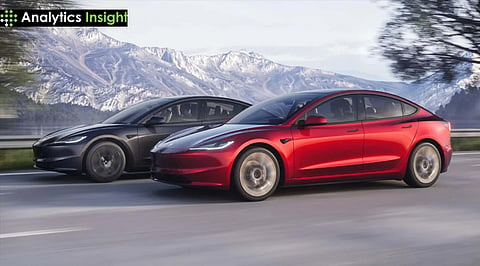

Tesla’s vehicle registrations in Europe fell sharply in July, marking the company’s seventh consecutive month of decline. According to data from the European Automobile Manufacturers Association (ACEA), the US automaker registered 8,837 new cars across the European Union, the European Free Trade Association, and the United Kingdom, representing a 40% year-on-year decrease. Between January and July, Tesla registered 119,013 new registrations in the region, which is a drop of 33.6% relative to the same time in 2024.
Analysts have credited the downward trend to an aging product range, increased competition by Chinese brands, and reputational issues relating to high-profile scandals involving Chief Executive Elon Musk. The company has not introduced a significant update to its car models in recent years, and Cybertruck has not been doing well. Tesla has asserted that it is developing a cheaper electric vehicle and intends to mass-produce it in the second half of 2025.
As Tesla faced difficulties, its Chinese competitor, BYD, maintained its growth in the European market. In July, BYD achieved an increase of 225 percent over last year with 13,503 new registrations, which enhanced its market share to 1.2%.BYD recorded 84,416 vehicles from January to July, which is equivalent to 290% growth compared to the same period last year.
Industry analysts have identified affordability and competitive pricing as driving factors in the development of BYD. The firm has stepped up its expansion into the European market by establishing showrooms on the continent and introducing a few lower-priced models to appeal to cost-effective buyers. There is also recognition of BYD vehicles in various industry awards, which has contributed to the brand gaining credibility among drivers in the increasingly competitive European electric vehicle market.
Despite the Tesla sales downturn, overall sales of battery electric vehicles (BEVs) in Europe increased. ACEA data showed BEV registrations rose by 33.6% year-on-year in July. Plug-in hybrid sales advanced 52.3%, while hybrid electric models grew by 11.1%. Across the European Union, battery electric vehicles accounted for 15.6% of all new registrations between January and July, up from 12.5% in the same period last year.
Growth was strongest in major EU economies. Germany saw a 38.4% increase in BEV sales, while Spain registered an 89.6% jump. Italy reported a 29% rise, whereas France experienced a 4.3% decline in electric vehicle sales. In the United Kingdom, BEV registrations climbed by 31%. In general, the number of new car registrations in the EU declined by 0.7% in the first three quarters of 2025, with hybrid vehicles holding the biggest share, 34.7%.
Also Read: Tesla Stock at $310 After CEO Musk's New $30 Billion Compensation
The European electric vehicle market has become highly competitive, with Chinese manufacturers becoming aggressive. According to recent statistics published by JATO Dynamics, Chinese brands also seized a record market share of 5 percent in Europe during the first half of 2025. Excluding BYD, state-owned SAIC Motor has improved its sales with MG, IM Motors, and Roewe, which registered a market share of 1.9 percent during the first half of 2025.
Traditional European automakers have shown mixed results. Volkswagen, BMW, and Renault Group reported increasing new registrations in July, whereas Stellantis, Toyota, Suzuki, and Hyundai reported a decrease. These divergent trends reflect consumers' changing preferences, as price and product differentiation are increasingly becoming the guiding power behind retail decisions in the expanding EV market in the region.
